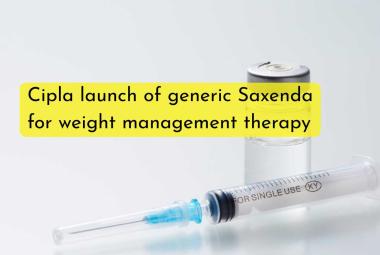Merck, a leading science and technology company, today announced in a European worksharing procedure (WSP) an extension to the label for metformin products in the EU - Glucophage (metformin hydrochloride [HCL] immediate release), Glucophage XR (metformin HCL extended release) and Stagid® (metformin embonate immediate release) - for use throughout pregnancy.
Maria Rivas, SVP and Chief Medical Officer at Merck said, “During pregnancy and when wanting to become pregnant, good glycemic control is of utmost importance, as insufficient glycemic control leads to a three times higher risk of pregnancy loss than in normoglycemic women. The estimated risk of malformation is doubled. Until now, pregnant women were required to use insulin to control their blood sugar during this period. The label extension now opens a tablet alternative to women who are not able or wanting to use daily injections.”
In a European worksharing procedure (WSP), the variation for label extension was approved based on results from Merck’s register-based cohort safety study, investigating the follow up of children from over ~4.000 pregnancies with metformin1 for up to 11 years and extensive independent scientific publications, which all confirmed no increased risk of congenital abnormalities or feto/neonatal toxicity after exposure to metformin at the time of conception and throughout pregnancy.
Pregnancy and diabetes
The prevalence of type 2 diabetes is rising around the world. In 2021, 21.1 million births worldwide (16.7%) were affected by hyperglycemia. In Europe, 3-7% of all pregnant women develop gestational diabetes (GDM).3,4 Furthermore, 1% of all pregnancies are in women with pre-existing type 2 diabetes.5 To date, these conditions had to be managed with insulin when drugs were needed. Regarding the periconceptional phase, insulin-resistant polycystic ovary syndrome (PCOS), which affects 5-20% of all reproductive-aged women is associated with a 15-fold increase in infertility. The rate of early pregnancy loss is three times greater in PCOS pregnancies.
Metformin during pregnancy
The European Health authorities participating in the WSP weighed the benefit and risk of metformin use on both the mother and child. Their decision was informed by data investigating metformin in pre-gestational and gestational diabetes. Regarding the mother, metformin was comparable to insulin in reaching maternal blood sugar control and was better than insulin regarding pregnancy weight gain. Metformin use during pregnancy was associated with a lower risk of pregnancy-induced hypertension and preeclampsia.When used together with insulin for pregestational diabetes, metformin significantly lessened the amount of insulin required and lowered the risk of severe hypoglycemia.
As metformin crosses the placenta, the safety of the unborn child had to be confirmed: Children exposed to metformin in utero may be born lighter than those exposed to insulin but are less in danger of a risky blood sugar dip directly after birth. So far, no long-term risks for the child later in life (e.g. on mental development and weight) have been confirmed.
Metformin alone may sometimes not be enough to control blood glucose. In these cases, it is recommended for doctors to use metformin in combination with insulin21 or change to insulin.














